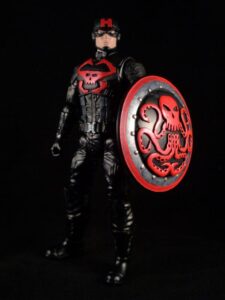The ruler of the world’s second most powerful country feels so insecure that he has to ban mentions of Winnie the Pooh because some people think there’s a resemblance. It would be laughable except for the real-world consequences. I’m sure none of the panels at the Chengdu Worldcon discussed Milne’s character. You also aren’t allowed to discuss it in an online game called Marvel Rivals. The use of a long list of words and phrases is flagged as inappropriate in game chat. Among the phrases Marvel won’t let you use are “Winnie the Pooh,” “Pooh,” “Tiananmen,” “1989,” and “Free Taiwan.” Ironically, Disney, which owns Marvel, also owns the animated version of Winnie the Pooh. So Disney has acquiesced in censoring the mention of its own property.
 Not that this is surprising; Disney thanked China’s Uyghur concentration camps for helping with the filming of Mulan. Disney has a history of groveling to the Chinese government.
Not that this is surprising; Disney thanked China’s Uyghur concentration camps for helping with the filming of Mulan. Disney has a history of groveling to the Chinese government.
More irony: I don’t use TikTok, but it appears from searches that the site — which the US government is in the process of banning because of supposed Chinese control — allows mentions and even images of Winnie the Pooh. Censorship by the US is just as arbitrary as censorship by China.
Marvel Rivals also reportedly banned players for accessing the game from Linux or MacOS and then apologized. This is probably unrelated, but it’s amusing.
In the comics, Captain America was replaced for a while with an evil version of himself, working for Hydra. Reality echoes fiction. Marvel’s (Disney’s) use of a character who’s supposed to represent all that’s best about America as a tool of Chinese suppression of speech is deeply shameful.